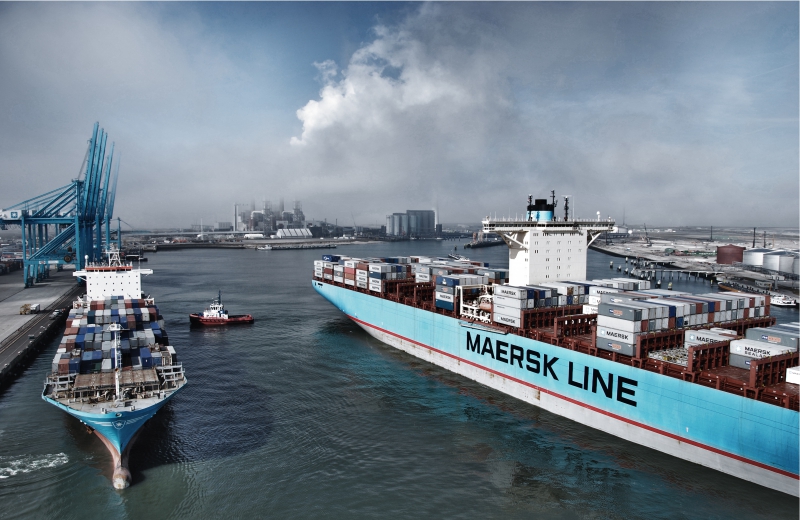A.P. Moller-Maersk has made a fourth quarter profit of $386 million, attributing the rise in earnings primarily to its container shipping business, Maersk Line. Underlying profit for the continuing operations was $356 million, compared to a loss of $496 million in 2016. The profit consisted of $1 billion related to the transport and logistics business, in line with guidance.
“The past year was unusual for A.P. Moller-Maersk, characterised by a cyber attack and operational challenges in a few hubs. We succeeded in growing the revenue by 13 per cent, improving cash flow and increasing underlying profits from a low 2016 base. However, the financial result shows that significant improvements are still needed. On the other hand, when we look at the strategic business transformation, progress throughout the year has indeed been satisfactory. We have taken the first steps towards the integration of our container shipping, ports and logistics businesses and our digital transformation is taking shape. At the same time, we have found new owners for part of the energy-related business units,” said Søren Skou, CEO of A.P. Moller-Maersk.
Highlights from 2017 include $14 billion worth of M&A transactions, including welcoming Hamburg Süd to the A.P. Moller-Maersk family, agreement to sell Maersk Oil, sale of Maersk Tankers and Mercosul—the Brazilian container line—as well as the sale of the remaining 19 per cent stake in Dansk Supermarked Group. Additionally, structural solutions for Maersk Drilling and Maersk Supply Service are expected before the end of 2018.
Maersk Line and Damco were severely impacted by a cyber attack in Q3. Maersk Line recovered quickly with strong volume growth and near all-time low unit costs toward the end of the year. Stronger cooperation between Maersk Line and APM Terminals generated the first integration synergies of around $0.1 billion despite negative impact from the cyber attack and operational challenges in key hubs.
The acquisition of Hamburg Süd is an important part of the Maersk growth strategy. Together, the two carriers have around 19 per cent global capacity market share, more than 4 million TEUs in container capacity, and an unmatched network of services. The Germany-based carrier will remain an independent brand, with only operational aspects merging with Maersk Line. Cost synergies from the merger are expected to be between $ 350-400 million by 2019, primarily from integrating and optimising the networks as well as standardised procurement.
“After a successful acquisition of Hamburg Süd, the integration is off to a good start, with both carriers growing volumes during the first months. A smooth integration of Hamburg Süd remains a top priority for 2018,” says Mr Skou.
Maersk made progress on the digital transformation of the core business, moving customer transactions online and digitising the way assets are operated. A series of digital initiatives were launched during the year to accelerate the transformation of the industry, from legacy paper-based to digital customer-centric processes and services, enabling new product offerings.
These include the launch of Twill, a digital freight forwarder and Remote Container Management (RCM) for reefer customers; a partnership with Microsoft for cloud computing and digital product development; and a joint venture with IBM to make trade easier for everyone, by digitising the exchange of information related to trade.








